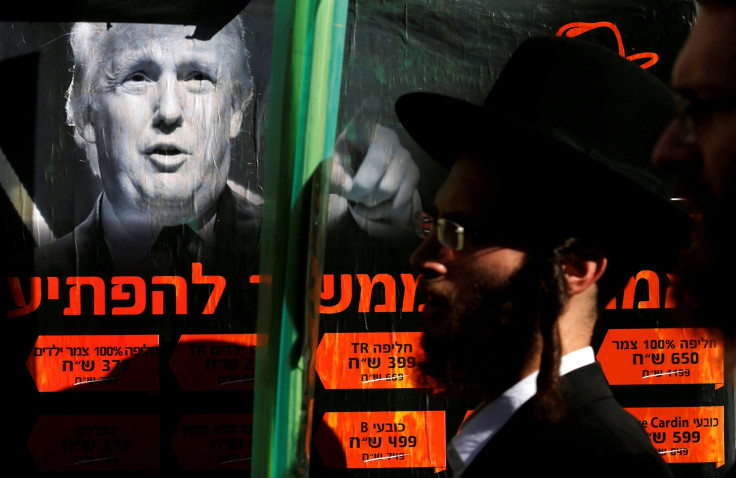What Will Donald Trump Do About Israel? CIA Chief Secretly Heads To Palestine As Netanyahu Visits Washington

CIA Director Mike Pompeo secretly met Tuesday with Palestinian President Mahmoud Abbas in the West Bank, according to two senior Palestinian officials. The meeting came one day before Israeli Prime Minister Benjamin Netanyahu was scheduled to meet with President Donald Trump in Washington to discuss U.S. policy toward the Palestinian-Israeli conflict.
The meeting between Pompeo and Palestinian leadership, which the unnamed officials described as "warm and positive," would be the first high-level contacts between the U.S. and Palestine since Trump took office last month. Pompeo, who was nominated by Trump for the top intelligence position in November and confirmed last month, reportedly held talks with Abbas along with top officials intelligence chief Maj. Gen. Majed Faraj, and Saeb Erekat, the secretary general of the Palestine Liberation Organization's Executive Committee, concerning an anticipated shift in Washington's strategy in the region.
Trump's predecessor, former President Barack Obama, supported a two-state solution that would establish parallel, sovereign nations for Israelis and Palestinians. White House officials have indicated, however, Trump may acquiesce to Netanyahu's vision of preventing Palestinian statehood. Israeli conservative hardliners have long argued that the internationally recognized borders between Israel and Palestine are no longer valid as Israel occupied and annexed swathes of land including East Jerusalem after a 1967 war with neighboring Arab countries. Around 600,000 Israelis live on hundreds of settlements located on occupied Palestinian territory, a practice that Obama and former Secretary of State John Kerry condemned in December.
Trump joined Netanyahu in criticizing the Obama administration for calling Israel out on its settlement policy and once described himself as Israels' "closest friend." Since taking office Trump's administration may have moderated its message. White House Press Secretary Sean Spicer issued a statement earlier this month saying that, while the administration did not believe existing settlements were harmful to the peace process, additional construction "may not be helpful in achieving that goal.”
As Netanyahu heads to Washington Wednesday, he was expected to seek Trump's support for settlement building and a potential rejection of the two-state solution. Palestinians have responded with outrage to Trump's courting of Tel Aviv and fear it could defer their national aspirations and lead to further loss of territory to Israel.
"If the Trump administration rejects this policy it would be destroying the chances for peace and undermining American interests, standing and credibility abroad," Hanan Ashrawi, a senior member of the Palestine Liberation Organization, said in a quote published Wednesday by Reuters. "Accommodating the most extreme and irresponsible elements in Israel and in the White House is no way to make responsible foreign policy."
Other Palestinian officials told Reuters Wednesday they had not yet received any word of a change in U.S. policy toward the territorial conflict. Trump had also suggested he would take steps toward moving the U.S. embassy in Tel Aviv to Jerusalem, effectively recognizing the disputed city as the Israeli capital. The administration has apparently since stepped back from this view after massive Palestinian protests and criticism by Arab allies including Jordan's King Abdullah.
© Copyright IBTimes 2024. All rights reserved.












